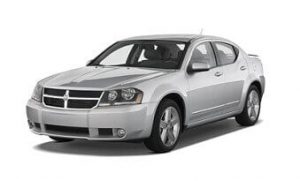Dodge Avenger Fault Codes
You can find common Dodge Avenger fault codes on this page that when clicked take you to a detailed description.
You can also type in the fault code you are getting below to find a more detailed description.
Search Dodge Avenger Codes
Do you know the fault code already? Enter it in the box below and hit "Search Codes".
Dodge Avenger Recalls
When a car manufacturer detects a problem with a model they put out a recall notice and more often than not offer to fix the problem free of charge.
You can check to see if your Dodge Avenger has any recall notices on our sister site AutoRecalls.co, sorted by model year.
View Dodge Avenger Recalls »
Common Avenger Fault Codes
These are the most common Avenger fault codes that people are searching for.
 P0128
P0128
Coolant Thermostat (Coolant Temp Below Thermostat Regulating Temperature)
Learn More Fixes P2015
P2015
Intake Manifold Runner Position Sensor/Switch Circuit Range/Performance Bank 1
Learn More Fixes
- Manufacturer: Dodge
About the Avenger
The Avenger is a nameplate used by two different models produced by Dodge. The original coupe was on the market between 1995 and 2000, and the latest version, the sedan, was released in 2007 and was manufactured until its discontinuation in 2014.
Besides the original version, there was only a single generation to be released by General Motors. Its discontinuation represented the last mid-size sedan to be sold by Dodge.
Competition for the model typically came from the Ford Fusion, Hyundai Sonata, and Kia Optima.
The most common issue that owners have reported is P0456. This code indicates that there is a small leak coming from the evaporation emissions control (EVAP) system.
In most cases, this is the result of a poor seal from the gas cap, which can be caused by a defective cap. It is also very common for this code to be caused by a gas cap that is not fastened correctly. Checking this should always be the first step for this fault code.
Fault code P0420 is another issue that owners have had to deal with. This code is logged when the catalytic converter is not performing properly.
This can be caused by wear over time, causing the converter to fail. It can also be the result of failing oxygen sensors before and after the converter.
Another commonly reported issue is P0335, which can be a significant problem if ignored. This code is logged when a malfunction has been detected from the crankshaft position sensor circuit.
This is typically caused by a failed position sensor, which needs to be replaced. This code should be addressed immediately.



